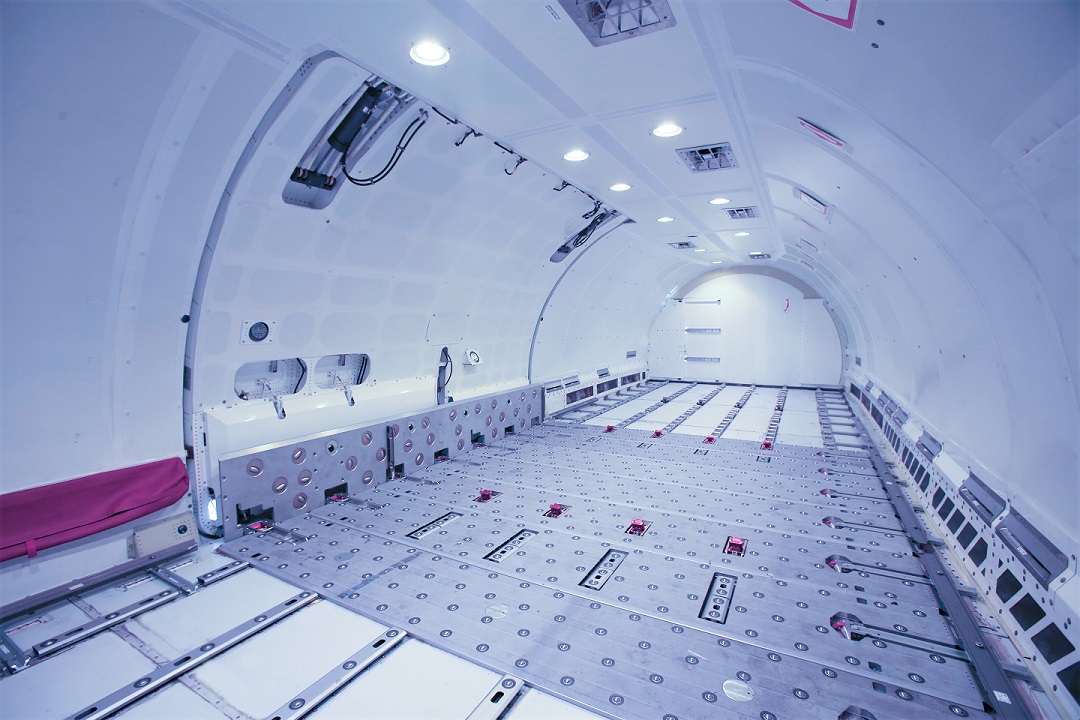Aero Capital looks to grow with the A321 freighter
04 / 11 / 2022

Dan Watson. Source: Aero Capital Solutions
Aero Capital Solutions (ACS), already an established B737-800 passenger to freighter (P2F) specialist, has expanded its narrowbody conversion programme to include the Airbus A321.
The US-based aviation leasing company has launched an A321 freighter conversion programme with partner SmartLynx Airlines, an experienced A321 freighter provider, to deliver four aircraft.
ACS chief commercial officer Dan Watson says: “We have always been specialised on narrowbody aircraft in our passenger fleet and we maintain a significant inventory of engines in a separate lease portfolio, so we are really well-suited to handle both Airbus and Boeing.”
The B737-800 supplemental type certificates (STC) for conversions are proven and, until recently, says Watson: “We didn’t have either the slots availability or, frankly speaking, a maturity level for the A321 freighter to give us the ability to step in with scale.
“But now we see that opportunity in partnering with SmartLynx, a leading operator of the A321 freighter, for the initial four aircraft.
“It is really our entry point, but certainly it is just the start of what we see in terms of investment in the A321.”
ACS will not take its eye off the B737 ball: “We have an active programme on the B737–800 and a very diverse lessee portfolio where we have 40 orders with Aeronautical Engineers Inc (AEI)as the selected STC provider.
“Obviously, we will continue to accumulate the feedstock and execute on the –800 freighter.”
The A321 has been a successful passenger aircraft, which tends to help in terms of feedstock and cockpit familiarity.
Watson says: “One of the challenges of executing a freighter conversion programme with lessors is ensuring that you have the right feedstock on a timely basis.
“We try to use our passenger aircraft portfolio to support that, and so we actively invest into long-lease aircraft on the passenger side.
“We have done so successfully for the B737–800 whereby we are then able to utilise is aircraft when they come out of passenger service and use those them for freighter conversions. We will continue to do that with the A321.”
While the A321 feedstock is not as plentiful as the B737-800, Watson says that the A321 economics are “compelling,” adding: “We certainly don’t see any near-term challenges to locate and acquire the right feedstock aircraft.”

A321-200PCF. Source: Aero Capital Solutions
The four SmartLynx conversions are being carried out, two each, by Airbus conversion house EFW in Germany and Precision in the US.
Watson observes that, despite the current macro-economic headwinds, the long-term prospects for the narrowbody B737-800 and A321 look good.
Those operators upgrading from the ‘classic’ B737s will probably opt for the more economic -800, while the bellyhold container options of the A321 will prove attractive to those surfing the e-commerce wave.
That expected demand, there are no purpose-built narrowbody freighters in production, is why ACS has expanded into the A321 P2F sector: “With Boeing and Airbus, we would basically like to play both sides of the market.”
The appetite for A321 P2Fs is clear to see. Aviation leasing company AerCap Holdings has placed firm orders for 15 Airbus A321 conversions with EFW and has options for a further 15 aircraft.
The aircraft feedstock for the conversions will come from the A321 passenger portfolio of AerCap, which is the largest owner of the A320 family.
AerCap says that the A321 freighter is the best-in-class and most fuel-efficient aircraft to replace the B757-200 freighter.
So, what is driving this narrowbody demand? Watson agrees that Covid accelerated the demand for online shopping, not just in the US and Europe but across the globe, seeing a focus on consolidating supply chains for surging e-commerce.
ACS has seen the forecasts for air cargo volumes, with Watson saying: “Perhaps we are a bit more bullish on the near-term investments that will be needed to support the growth in that cargo infrastructure.”
One result, observes Watson, is that many mainline airlines saw the benefits of having a dedicated cargo operation and are now stepping into the market with narrowbody freighters, both the B737 and A321, to support widebody feeder networks.
Watson’s background includes 18 years in various managing executive roles for MTU Aero Engines in Germany, important engineering experience for someone in the P2F market.
Watson says: “If you are in the mid-life and end-of-life aircraft space, you have to know your engines because it is the single most important aspect of narrowbody mid-life aircraft and makes up about 80% of the cost.
“It is an important part of what we do. For the converted freighter market, it is a significant component of our strategy, to ensure that we have the right engine size in operation, producing a cost-effective aircraft.”
Watson says that the engines, including maintenance, are a critical part of the total operating cost for a converted freighter.
He concludes: “We are a very serious and significant investor in the narrow body conversion space and are focused on producing the most cost-effective narrow body freighters.
“It is about executing a programme where we continue to have stability and processes to produce the freighters in a timely basis as promised to lessees.
“We are working hard to support lessees both on the engine side and as it relates to the entry into service of the aircraft, and long-term we are seeing successful operations where customers come back for more aircraft.”
Aero Capital and SmartLynx partner for A321 freighter conversions














